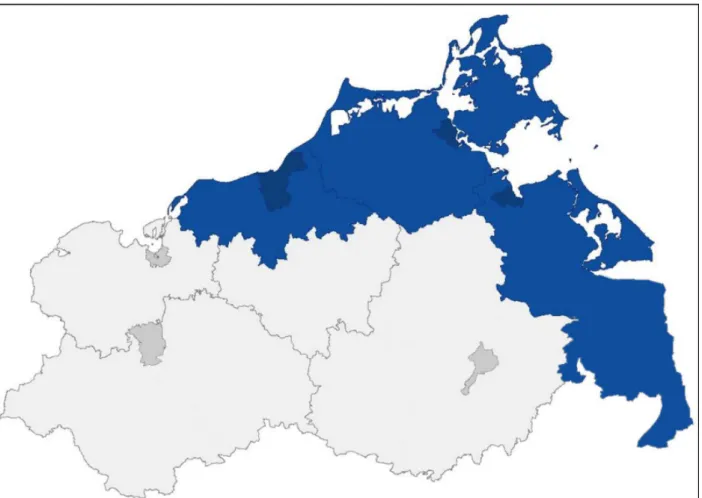Mastering old challenges with new alliances – how to breathe life in the amendments to the federal regulations for infection control in Germany
Alte Herausforderungen mit neuen Allianzen meistern – Wege zur Umsetzung des Infektionsschutzänderungsgesetzes in Deutschland
Nils-Olaf Hübner
1Axel Kramer
1Wolfram Mittelmeyer
21 Institute of Hygiene and Environmental Medicine, University Medicine Greifswald, Germany 2 Orthopedic Clinic and
Ambulance, University Rostock, Germany
Editorial
Recently, amendments to the federal regulations for in- fection control in Germany (Infektionsschutzänderungs- gesetz) have passed the legislative. This act, as part of the German strategy against antimicrobial resistance (Deutsche Antibiotika Resistenz Strategie, DART), is an important step for the regulative base of infection preven- tion in Germany, as it provides the legal structures needed to master the challenges by nosocomial infections and multiresistant organisms. An act however can only provide the legal framework for concrete solutions. History has shown that such solutions require more than the political will, but in fact people with motivation, ability and the necessary resources to breathe life into the articles of the act.
This issue of “GMS Krankenhaushygiene Interdisziplinär”
encircles a wide area of current problems in hospital hy- giene from so-far neglected risks in endoscopy to anaes- thesiology and the treatment of chronic wounds to skin care but has a special focus on multiresistant organisms (MRO), one of the greatest challenge of medicine world- wide.
While problems with bacterial resistances are a global threat, solutions for such problems have to concern the regional players in health care and their individual in- terests. Over the last couple of years, networks of health care providers have formed in Germany as well as other European countries to bring together those who are willing to battle nosocomial infections and MRO. Some of these
networks have been supported by federal grants in Ger- many since. HICARE (Gesundheitsregion Ostseeküste), the Health Region Baltic Sea Coast, is one of the biggest of those networks, as it brings together more than 40 partners from research, business, and health care in their efforts to jointly battle MROs (Figure 1). This network is funded by a total sum of over 16 million Euros in research grants by the German Federal Ministry of Research and Education, the State of Mecklenburg-Vorpommern and grants given by the participating hospitals and registered doctors, health care institutions, health insurances and medical industry. However, as stated above, more than money is needed for a successful battle against MROs.
A relevant part of the manuscripts in this issue are based on presentations held on the HICARE-kick-off-workshop in spring 2011 as well as the current research output of the project’s six research fields (Figure 2). Beside the scientific output, one of the maybe most important, but modest, results of this project is that stakeholders from all over research, business, and health care have agreed to one joint mission statement that sets the basic prin- ciples for all partners despite of their individual, and sometimes conflicting, interests (Figure 3).
The next steps will be to underlay the project with more practical results and at the same time involve other re- gions and partners into the network. So, this issue is an invitation to collaborate and make the efforts against MRO international, too.
1/4 GMS Krankenhaushygiene Interdisziplinär 2011, Vol. 6(1), ISSN 1863-5245
Editorial
OPEN ACCESS
Figure 1: A map of “HICARE-Gesundheitsregion Ostseeküste”
Figure 2: Organization chart of the HICARE network
2/4 GMS Krankenhaushygiene Interdisziplinär 2011, Vol. 6(1), ISSN 1863-5245
Hübner et al.: Mastering old challenges with new alliances – how ...
Figure 3: Joint mission statement of the HICARE project partners
3/4 GMS Krankenhaushygiene Interdisziplinär 2011, Vol. 6(1), ISSN 1863-5245
Hübner et al.: Mastering old challenges with new alliances – how ...
Corresponding author:
Nils-Olaf Hübner, MD
Institute of Hygiene and Environmental Medicine, University Medicine Greifswald, Walther-Rathenau-Str.
49a, 17489 Greifswald, Germany, Phone:
+49-3834-515546, Fax: +49-3834-515542 nhuebner@uni-greifswald.de
Please cite as
Hübner NO, Kramer A, Mittelmeyer W. Mastering old challenges with new alliances – how to breathe life in the amendments to the federal regulations for infection control in Germany. GMS Krankenhaushyg Interdiszip. 2011;6(1):Doc27.
DOI: 10.3205/dgkh000184, URN: urn:nbn:de:0183-dgkh0001848
This article is freely available from
http://www.egms.de/en/journals/dgkh/2011-6/dgkh000184.shtml Published:2011-12-15
Copyright
©2011 Hübner et al. This is an Open Access article distributed under the terms of the Creative Commons Attribution License
(http://creativecommons.org/licenses/by-nc-nd/3.0/deed.en). You are free: to Share — to copy, distribute and transmit the work, provided the original author and source are credited.
4/4 GMS Krankenhaushygiene Interdisziplinär 2011, Vol. 6(1), ISSN 1863-5245
Hübner et al.: Mastering old challenges with new alliances – how ...
